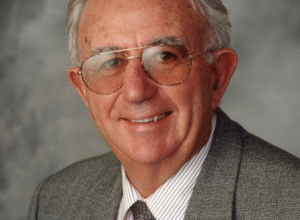In looking ahead, sometimes it pays to look back. Recently, we’ve been reviewing our archive of resources and our collective body of work across the last 40 years, revisiting the significant contributions of the researchers, philosophers, and practitioners who have influenced our practice.
This journey through time has been fascinating, not least for seeing how the language and buzzwords of workplace reform have evolved – from ‘#industrialdemocracy’ in the 70s to ‘#participativemanagement’ in the 90s, and now to terms like ‘#Agile’ and ‘#psychologicalsafety’.
This process led us to put pen to paper and share our reflections on what has endured, our reconfirmations of core principles that remain as relevant as ever, and some provocations for the future.
One of the most significant and influential Australians whose work we revisited was Professor Bill Ford. His pioneering efforts in the 1980s and 90s helped shift Australian organisations such as ICI, LendLease and the Opera House from rigid, hierarchical structures toward dynamic, learning-based systems. He emphasised integrating people, process, place and partners, and championed the move from a ‘training focused’ to a ‘learning focused’ culture – a distinction that remains incredibly powerful today.
Looking back, it’s clear that many of the challenges are timeless. The world has become more turbulent and discontinuous, making the shift from ordered, predictable models to embracing complexity more urgent than ever. Human systems are messy and entangled; they are not linear, and they don’t respond to recipes or ‘best practice’ books copied from other contexts. As one cautionary tale revealed, implementing ‘bright ideas’ without dialogue with the people it affects can lead to a ‘huge disaster that could not be fixed’. Buying the book of somebody else’s success will not be the answer for you! In today’s world, context is everything.
What has also stood the test of time is the uniquely Australian understanding that quality is the ‘outcome of a good working relationship’, built on a foundation of trust, mutual respect, and psychological safety. Leadership, then, is not about command and control, but about being someone who cares, ‘walks the talk,’ and empowers people by giving them a say in the decisions that affect their work.
Our journey through the archives has reconfirmed that the future of work will not be built on finding a new set of immutable rules. Instead, it will emerge from applying enduring principles to new contexts, fostering dialogue, and embracing experimentation.
In the article series that follow, we will explore these themes in more detail.
Professor Bill Ford (1929–2019) became an influential figure in changing the culture of the Australian workforce by promoting continuing adaptation in a changing technological world. A Fulbright Scholar, head of the Department of Industrial Relations at the University of NSW, Ford served as adviser to the Federal Government, UN organisations and foreign governments.
He set about persuading a workforce entrenched in traditional practices to open up its collective mind. And nobody could ever accuse him of speaking from an ivory tower. The son of a Sydney wharf labour, he was a Rocks kid who left school at the age of 15. Years later, he helped organise the famous 1965 students’ ‘Freedom Ride’ through rural New South Wales.



